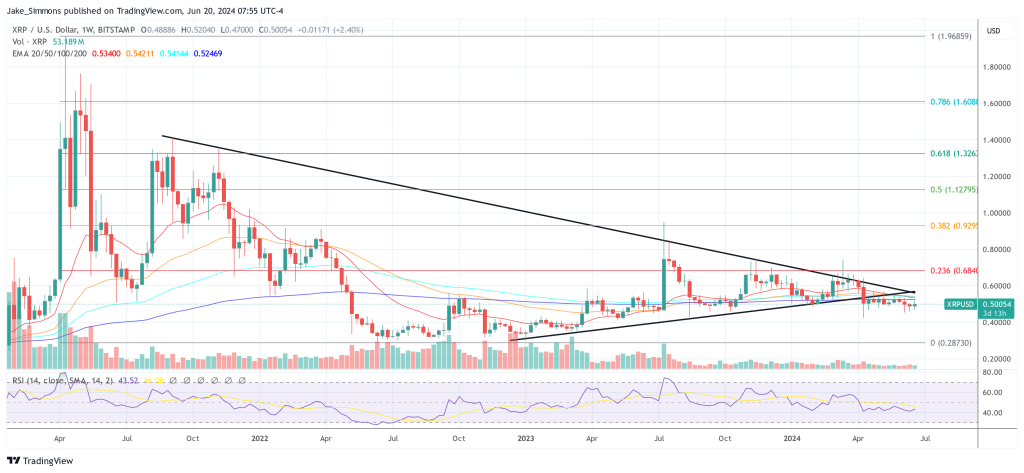ARTICLE AD BOX
The Securities and Exchange Commission (SEC) may opt not to appeal the summary judgment ruling from Judge Analisa Torres partially favoring Ripple Labs, signaling a strategic shift to avoid establishing a potentially unfavorable precedent in higher courts. This possibility has come to light as the crypto community awaits the court’s remedies phase ruling expected by the end of Summer 2024, after which the SEC’s window to appeal will open.
Why The SEC May Want To Avoid An Appeal Vs. Ripple
Kristina Littman, former head of the SEC’s Enforcement’s Cyber Unit, weighed in on the SEC’s potential course of action during a recent conference on digital assets. She speculated that given the mixed judicial opinions in similar cases, the SEC might choose to accept the district court’s decision.
She noted, “I’ll say on the Ripple appeal point, I’ll be curious to see whether the parties appeal there.” Her observation points to the uncertainty and strategic calculations at play behind the scenes.
Further elaborating on the potential judicial conflict that complicates the appeal decision, Littman remarked, “I think there’s some speculation that because Judge Rakoff and the Terra opinion explicitly disagreed with Judge Torres’ logic from the Ripple opinion, and then Coinbase doesn’t really address the Ripple opinion as much but you know pretty explicitly adopts the Terra logic.”
She continued by highlighting the low chances for an appeal, “I think there’s some speculation that the SEC might just let the Ripple opinion stay there as a district court opinion and not risk you know elevating it to a circuit level where they could potentially elicit bad law when they have otherwise favorable rulings in the aftermath of the Ripple litigation.”
Did Kristina Littman of the #SEC just confirm that the #SEC is NOT appealing the #Ripple case? 


We know how these speculations have gone, she knows! pic.twitter.com/ilzqC74Ho3
— wEeZiE {X} John Deaton 4 Senate (@NerdNationUnbox) June 19, 2024
John Deaton 4 Senate (@NerdNationUnbox) June 19, 2024
What’s At Stake
The initial ruling in July 2023 found that Ripple’s programmatic sales and secondary market transactions were not classified as security transactions. The company prevailed on three of the four contested points. Judge Torres only concluded that the sales of XRP to institutional clients did qualify as security transactions.
This was seen as a major victory for Ripple, amidst a longstanding debate over the classification of XRP as security. The judgment hinged on detailed interpretations of US securities laws, particularly how they apply to digital assets, which are not explicitly covered under existing statutes.
Adding to the complexity are divergent rulings in other related cases. For instance, in the SEC vs. Terraform Labs case, Judge Rakoff rejected Judge Torres’ reasoning applied in the Ripple case. Additionally, major crypto exchange Coinbase has aligned itself more closely with the judgment in the Terraform Labs case rather than referencing the Ripple decision, further complicating the regulatory landscape.
Littman’s remarks reflect a broader strategic consideration within the SEC to potentially avoid testing uncertain legal waters at the appellate level, which could solidify adverse precedents that might hinder the agency’s ability to regulate in the sector effectively. Instead, by not appealing, the SEC might be looking to maintain a more flexible regulatory stance.
At press time, XRP traded at $0.50054.

.png)
 6 months ago
3
6 months ago
3








 English (US)
English (US)